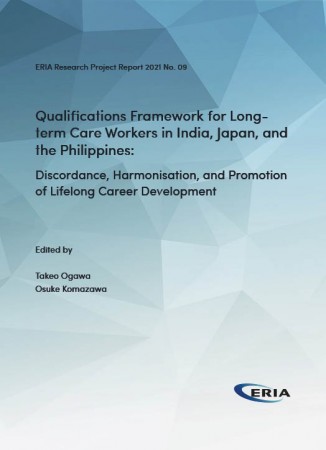RESEARCHERS
Takeo Ogawa, (NPO) Asian Aging Business Center; Professor Emeritus, Kyushu University
Motoyuki Kawatei, Keishin Gakuen, Japan
Hiromi Kinebuchi, Keishin Gakuen, Japan
The Government of Japan launched the Asia Health and Wellbeing Initiative (AHWIN) to promote regional and bilateral cooperation in creating vibrant and healthy societies where people can enjoy long and productive lives and contribute to sustainable development. Facilitating the smooth and effective circulation of long-term careworkers is one of the key pillars of this initiative. The development of human resources for long-term care throughout Asia is expected to smooth the path for Japanese long-term care service providers to invest overseas in care industries and encourage these industries in countries that may not have invested in long-term care as heavily. The establishment of this kind of mutually beneficial relationship between countries in Asia is an important aspect of AHWIN.
The goal of this project is the international harmonization of national qualification frameworks for long-term care workers. Japan has a national qualification system for certified care workers and a career ladder system for long-term care professionals. The Philippines has a qualified caregiver training system under the Technical Education and Skills Development Authority and the Philippine Qualifications Framework.
Indonesia and other ASEAN countries, as well as India, are establishing their own qualification frameworks for job training. National qualification frameworks, however, must be harmonized under an Asian qualification framework to allow for international long-term care work. Although Japan welcomes care workers from abroad, it remains unclear how best to identify their level within the Japanese qualification framework. Care workers in origin countries are also often confused about their professional rank in the receiving country.
This project will focus on the Philippines and India to clarify the following harmonization issues:
- How does the origin country estimate the competency of migrating workers using its national qualification framework?
- How will Japan estimate the competency of invited workers using its long-term care professional career ladder system?
- How will the origin country estimate the competency of care workers returning from Japan using its national qualification framework?


